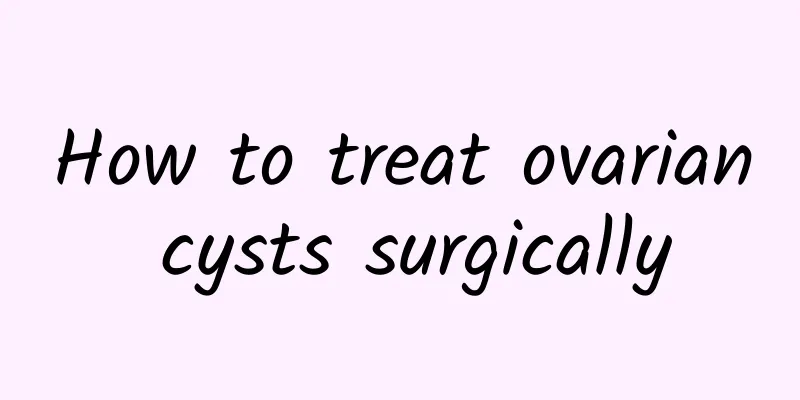Prevention of cervical erosion

|
Currently, the most common cervical erosion in clinical practice actually refers to the proliferation of the columnar epithelium of the cervical canal mucosa after previous epithelial damage, which extends to the defect of the leucocyte epithelium in the uterine vaginal part, covers the wound surface, and replaces the original area of leucocyte epithelium defect. Because the columnar epithelium is thin, the congested capillaries under the mucosa are obvious and visible, so the diseased mucosa of the external cervical os appears as a bright red erosion-like area to the naked eye. Prevention methods of cervical erosion: 1. Maintain a happy spirit and enhance disease resistance. 2. Practice contraception and birth control to avoid the pain and trauma of abortion and curettage. 3. Keep the vulva clean: If there is no infection, do not use various flushing solutions to avoid damaging the natural protective barrier of the vagina, which will only make it more annoying the more you wash. Dietary precautions for cervical erosion: 1. Avoid spicy food: Spicy, warm and irritating foods will aggravate pelvic congestion and inflammation, or cause excessive contraction of the uterine muscles, thereby aggravating symptoms. 2. Foods such as chili pepper, pepper, garlic, onion, ginger, leek, chicken soup, durian and spicy condiments should be eaten less or not. 3. Avoid eating foods that are hot, coagulant, or contain hormones, such as longan, red dates, donkey-hide gelatin, and royal jelly. 4. Eat more lean meat, chicken, eggs, quail eggs, grass carp, turtle, white fish, cabbage, asparagus, celery, spinach, cucumber, winter melon, mushrooms, tofu, fruits, etc. What to do for cervical erosion? 1. Gynecological examination: focus on checking the size, shape, texture, thickness of the cervical canal, and whether there is contact bleeding. Secondly, check the condition of the vulva, vagina, uterus and paracervical tissues such as ovaries, fallopian tubes, pelvic lymph nodes, etc. 2. Cervical smear cytology examination is a routine gynecological examination. It is simple, easy, cost-effective, and the most important auxiliary examination and the preferred initial screening method for cancer prevention surveys. 3. Colposcopy can quickly detect lesions that are invisible to the naked eye. Taking biopsies from suspicious areas during colposcopy can significantly improve the accuracy of biopsies. 4. The iodine test and naked eye observation are very simple and cheap, and can detect at least 2/3 of the lesions. Currently, the World Health Organization (WHO) recommends the use of naked eye observation in developing countries. As a preliminary screening method for cervical cancer, 3%-5% acetic acid solution is used to smear the cervix, observe the reaction of the cervical epithelium to acetic acid, and then take a biopsy from the white lesion area. 5. Pathological examination of cervical biopsy tissue is the basis for confirming cervical cancer. |
<<: Treatment of ovarian cysts
>>: Causes of uterine fibroids
Recommend
What are the symptoms of congenital absence of vagina?
As we all know, women are prone to many diseases,...
Does ovarian cyst affect pregnancy?
Does ovarian cyst affect pregnancy? Ovarian cysts...
Is pelvic effusion contagious?
Whether the disease is contagious is a concern fo...
What are the common factors that induce chronic adnexitis?
Adnexitis is a common chronic inflammation and th...
What are the symptoms of incomplete painless abortion? There are 4 symptoms of incomplete painless abortion
Abortion is a very harmful operation to women. No...
How to relieve the pain of dysmenorrhea?
Women have to endure various inconveniences for a...
What are the symptoms of pelvic inflammatory disease and cervicitis
Pelvic inflammatory disease and cervicitis are co...
A favorite among young men and athletes! High Protein Shake Secrets
The "Jeremy Lin phenomenon" continues t...
What should I eat if I have uterine fibroids?
Uterine fibroids are a common gynecological disea...
Does pelvic effusion affect pregnancy?
Does female pelvic effusion affect pregnancy? Thi...
Analysis of the causes of bacterial vaginosis
The vagina is an important part of the female rep...
5 tips for children to eat less snacks and stay healthy without getting fat
During the Chinese New Year, every household will...
To control the spread of the disease, you need to understand the precautions of ovarian cysts
Now ovarian cysts have seriously endangered our h...
What injection can prevent the growth of uterine fibroids? What injection can prevent uterine fibroids?
What injection can prevent the growth of uterine ...
Will teenage girls have irregular menstruation?
Menstruation is a normal physiological manifestat...









